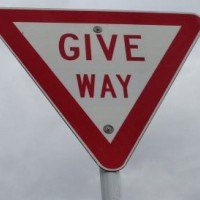Top 10 Things You Should Do When Driving
Driving is an important part of our lives. It’s how we get from place to place. Maybe some of you can drive already or maybe you’re almost ready to drive. Here’s some things that you should do to stay safe on the roads.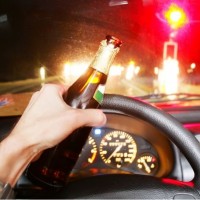
Drinking alcohol or doing drugs while driving is a bad idea. You realize that you are putting yourself and everyone else at risk. Every day, about 28 people in the United States die in drunk-driving crashes which doesn't sound like a lot until you realize that's one person every 52 minutes. In 2019, these deaths reached the lowest percentage since 1982 when NHTSA started reporting alcohol data however 10,142 people lost their lives and those deaths were all preventable. Alcohol or drugs reduce the function of the brain, impairing thinking, reasoning and muscle coordination. All these abilities are essential to operating a vehicle safely. As alcohol levels rise in a person's system, the negative effects on the central nervous system increase. Alcohol is absorbed directly through the walls of the stomach and small intestine. Then it passes into the bloodstream where it accumulates until it is metabolized by the liver. A person's alcohol level is measured by the weight of the alcohol in a certain volume of blood. This is called Blood Alcohol Concentration, or BAC. At a BAC of.08 grams of alcohol per deciliter (g/dL) of blood, crash risk increases exponentially. Because of this risk, it's illegal in all 50 states, the District of Columbia and Puerto Rico to drive with a BAC of.08 or higher, except in Utah where the BAC limit is.05. However even with a lower BAC alcohol can be dangerous in 2018 1,878 people were killed in drunk driving accidents where drivers had lower BAC levels. I'm not saying you can't go out and drink but just be careful. Have a designated driver or get an Uber if you absolutely have to. Don't ever drive while under the influence of drugs or alcohol it's a danger to yourself and everyone else
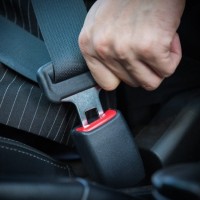
This is what everyone tells you from the time you're little. Wear a seatbelt it's a common thing that everyone should do. Even if you are a safe driver. Seat belts can save your life. According to NHTSA Of the 37,133 people killed in motor vehicle crashes in 2017, 47% were not wearing seat belts. In 2017 alone, seat belts saved an estimated 14,955 lives and could have saved an additional 2,549 people if they had been wearing seat belts. Just wearing a seat belt can save you from a moderate injury in a crash from 45-60% and can save you from a fatal injury by ranging from 45-65% depending on the vehicle. Without seatbelts you might be completely ejected from the vehicle in a crash and or be hurt by the airbags which are not designed to replace seatbelts but work alongside them. Most everyone agrees seatbelts are important but according to NHTSA about 10% of everyone who can drive in the US doesn't wear one which is surprising
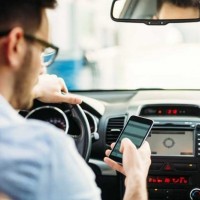
I know you've heard this before. Do not text and drive or get on your phone for any circumstances whatsoever. Even on a neighborhood street according to NHTSA over 3,140 people died in 2019 due to distracted driving. Texting is by far the most alarming distraction. Sending or reading a text takes your eyes off the road for 5 seconds. Which you think isn't that long but if you're driving at 55 mph, that's like driving the length of an entire football field with your eyes closed. There is no reason to send a text while driving because nobody can truly multitask it's been scientifically proven that we are merely task switching. If you must take a call or something pull over or go park somewhere in a parking lot. Luckily most newer cars allow you to call from the GPS so you can call without being totally distracted. Nonetheless it's important to stay focused on the road and nothing else
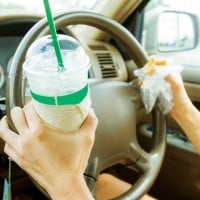
Now yes I get it sometimes you got to grab something on the go like McDonald's but the truth of the matter is nobody can multitask when you eat you take your eyes off the road for a second. I know that doesn't sound like a lot of time but it can add up and be just as bad as being on your phone while driving. And at the end of the day your food doesn't matter as much as your life and the lives of others. I know that it's tempting to take a bite of that Big Mac or drink the Starbucks iced coffee you just bought but try to wait until you arrive at your destination to eat or if it's really that far go park somewhere and eat. Whatever you do don't eat while you're driving because the last thing you want is to be forced to swerve to avoid an accident.
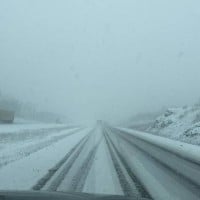
This is very important especially in the winter. I can't emphasize this enough but BE CAREFUL. About 17% of all car crashes occur on snowy/icy roads. Over 1,800 people die annually because of icy roads and over 156,000 crashes occur annually on icy and snowy roads. And if you think you're safe just consider that about 70% of roads in the US are in snowy areas which increases the chances of an accident. Winter weather can make roads slick and if it's snowing it can reduce visibility significantly. GO SLOW and give yourself plenty of time to stop. If you have to stop don't slam the brakes instead lightly pump them. Another thing that can cause issues is severe rain and flooding. If you are driving and come across a flooded section of road don't cross because you don't know how deep it is. If you have to cross proceed with caution. The last thing you want is to get stuck in the middle of the flood. Especially if the water is running and not at a standstill
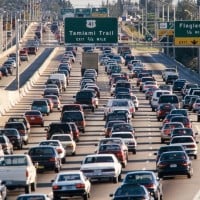
What do I mean by this exactly? I mean don't go flying down the street like this is NASCAR but don't be like grandma and drive 15 under the speed limit either. Both are dangerous and technically illegal. Find the middle ground. I'm not saying you have to drive the speed limit and follow it to a tee because let's be honest here everyone speeds. Nobody drives the speed limit. Most people will drive 5 over the speed limit and you can get away with it as long as you are staying with the flow of traffic. Any more than say 7 over is where an officer may decide to pull you over and give you a ticket. Basically in summary don't go too fast or too slow even though it's relatively rare for the average American to get pulled over in a year it can be costly. Speeding tickets can increase insurance premiums by an average of 48%. Progressive will double their premiums even for just one speeding ticket while Geico and State Farm only increased by 50%. MetLife is the outlier here because it doesn't increase rates for a single speeding ticket. So yeah lesson to be learned here is watch your speedometer
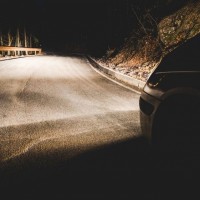
This is a no brainer but you'd be surprised how many people don't use headlights at night because they assume that streetlights and lit signs generate enough light to make headlights not matter not only is this dangerous for obvious reasons but it's also illegal. Most people will use headlights but there's still people that don't use headlights whether intentional or not be extremely cautious especially on roads that are poorly lit. Newer cars gauge clusters will stay lit regardless if it's day or night so people assume why turn on the headlights especially in the city where they can see relatively well enough. Here's the issue with that the tail lights don't turn on and it can be near impossible to see a car in front of you
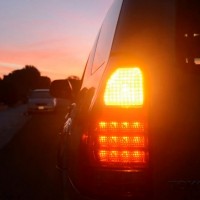
This is not that hard people I can't tell you how many times people are lazy and don't do this. It's honestly one of my pet peeves like are you that lazy? Look we can't read your mind. At least give a signal what you're going to do it's not that complicated and it will help save you and everyone else on the road. At least if you use it people know what you're going to do. How am I supposed to know you're going to turn? Technically the rule is to turn on your blinker 100 feet before turning but nobody does that. As long as you use it that's all you need
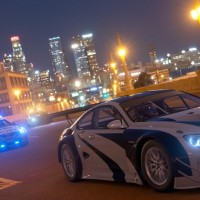
Your car/vehicle is not racing car. This is not carreer racing. Follow the speed limit.
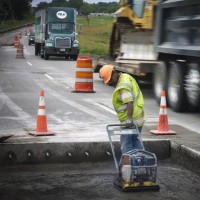
It's not uncommon to see construction on the roads. But if you're driving in a construction zone you need to be careful. Often times there is big trucks and other machines in the area on top of the fact that there's usually areas blocked off or restricted. Pay attention to anyone directing traffic and pay attention to signs in case you need to take a detour. Also I can't stress this enough but slow down! In most circumstances construction zones also mean that fines double so even basic traffic violations can be costly. Definitely don't want to be caught speeding in a construction zone of all places
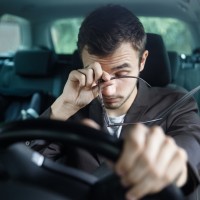
If you haven't had enough rest, you could fall asleep while driving and possibly die. The best thing to do would be to ask someone to drive you if you really have to go somewhere.
You need to be at the best conditions before driving. This is the optimal way to avoid causing accidents.
Driving when tired is a pretty big hazard. I must admit I have been been guilty of this a couple times.
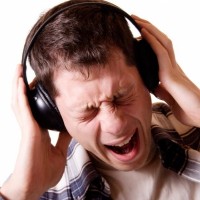
We all like listening to music while we drive. I mean if you don't you're just weird. But maybe don't crank up the volume to full blast Many people don't realize that listening to loud music while driving can be very dangerous, increasing the chance of driving irresponsibly and getting into a car accident. In fact, some studies found that loud music can negatively impact a driver's reaction time, increasing the likelihood of not braking soon enough, or failing to dodge an obstacle in the road. There is no universal law that specifies when music becomes too loud but it's up to individual counties and cities to determine that boundary. At the end of the day you likely won't be pulled over for just blaring music at a high volume but say you run a red light and get pulled over for that then the officer could write you up for the loud music which could be an additional ticket
